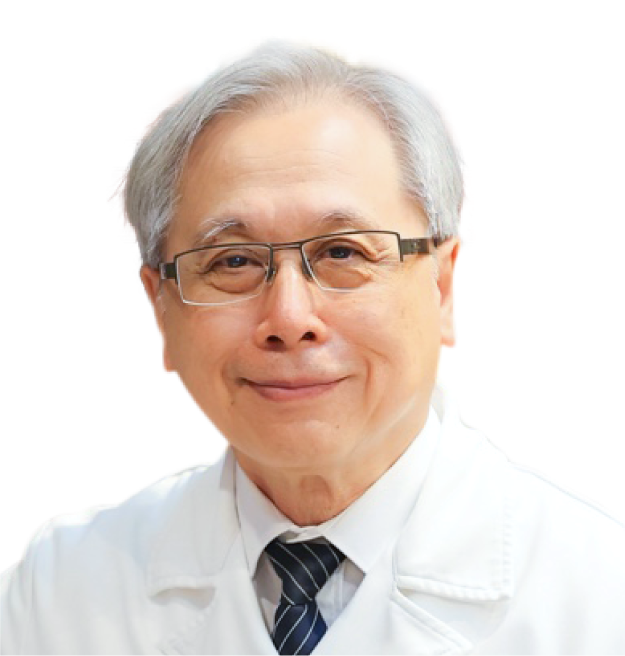
Prof. Ying-Wei WANG
Invited Speaker
Appointment(s)
Director,
Center for Palliative Care,
Hualien Tzuchi Hospital,
Taiwan
Speaker Biography
Professor Ying-Wei WANG is the Director of the Center for Palliative Care and a Medical Consultant at Hualien Tzu Chi Hospital. He currently serves as the Chair of the Development Committee of the Taiwan Academy of Hospice Palliative Medicine. He is a former Council Member of the Asia Pacific Hospice Palliative Care Network (APHN) and previously chaired the APHN Education Subcommittee.
Professor WANG received his M.D. from Taiwan University and his Ph.D. from Tulane University in the United States. He completed his residency training in Family Medicine at Taiwan University Hospital. His previous roles include Director-General of the Health Promotion Administration, Ministry of Health and Welfare (MOHW); Chief of Heart Lotus Hospice at Tzu Chi General Hospital; and Director of the Department of Medical Humanities at Tzu Chi University.
Since 1996, Professor WANG has pioneered the first Buddhist hospice program in Eastern Taiwan, offering both inpatient hospice care and community-based palliative services in remote areas. He has developed numerous innovative programs in hospice and palliative care, as well as in medical humanities. His areas of expertise include palliative care, medical humanities, medical education, and health promotion.
Professor WANG received his M.D. from Taiwan University and his Ph.D. from Tulane University in the United States. He completed his residency training in Family Medicine at Taiwan University Hospital. His previous roles include Director-General of the Health Promotion Administration, Ministry of Health and Welfare (MOHW); Chief of Heart Lotus Hospice at Tzu Chi General Hospital; and Director of the Department of Medical Humanities at Tzu Chi University.
Since 1996, Professor WANG has pioneered the first Buddhist hospice program in Eastern Taiwan, offering both inpatient hospice care and community-based palliative services in remote areas. He has developed numerous innovative programs in hospice and palliative care, as well as in medical humanities. His areas of expertise include palliative care, medical humanities, medical education, and health promotion.
Dying in Place in the Community: Rethinking End-of-Life Care for Ageing Societies
Abstract:
As populations age, there is growing recognition of the need to support older adults to not only age in place but also to die in place—within familiar environments, surrounded by dignity, comfort, and community. This presentation explores the evolving paradigm of community-based end-of-life care, emphasizing macro, meso, and micro-level considerations. At the macro level, policy frameworks must align with the goals of ageing-in-place and palliative care integration, while ensuring equitable access across socio-economic groups. At the meso level, collaboration among healthcare institutions, social services, and NGOs is essential to provide continuity of care and reduce unnecessary hospitalizations. At the micro level, training for frontline healthcare workers—including geriatricians, nurses, and social workers—is crucial, as is culturally sensitive education for foreign domestic helpers who provide essential caregiving in many households. By addressing systemic gaps and enhancing the capacity of both professional and lay caregivers, we can move toward a model of care that honors individual preferences at the end of life. Drawing from regional examples and best practices, this session invites gerontology and elderly care professionals to reimagine their role in supporting a good death in the community.
As populations age, there is growing recognition of the need to support older adults to not only age in place but also to die in place—within familiar environments, surrounded by dignity, comfort, and community. This presentation explores the evolving paradigm of community-based end-of-life care, emphasizing macro, meso, and micro-level considerations. At the macro level, policy frameworks must align with the goals of ageing-in-place and palliative care integration, while ensuring equitable access across socio-economic groups. At the meso level, collaboration among healthcare institutions, social services, and NGOs is essential to provide continuity of care and reduce unnecessary hospitalizations. At the micro level, training for frontline healthcare workers—including geriatricians, nurses, and social workers—is crucial, as is culturally sensitive education for foreign domestic helpers who provide essential caregiving in many households. By addressing systemic gaps and enhancing the capacity of both professional and lay caregivers, we can move toward a model of care that honors individual preferences at the end of life. Drawing from regional examples and best practices, this session invites gerontology and elderly care professionals to reimagine their role in supporting a good death in the community.
